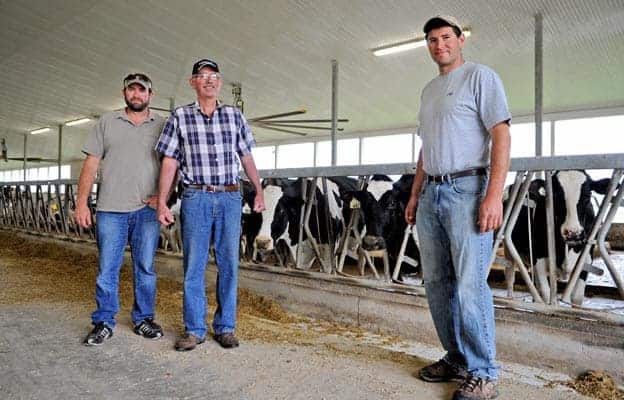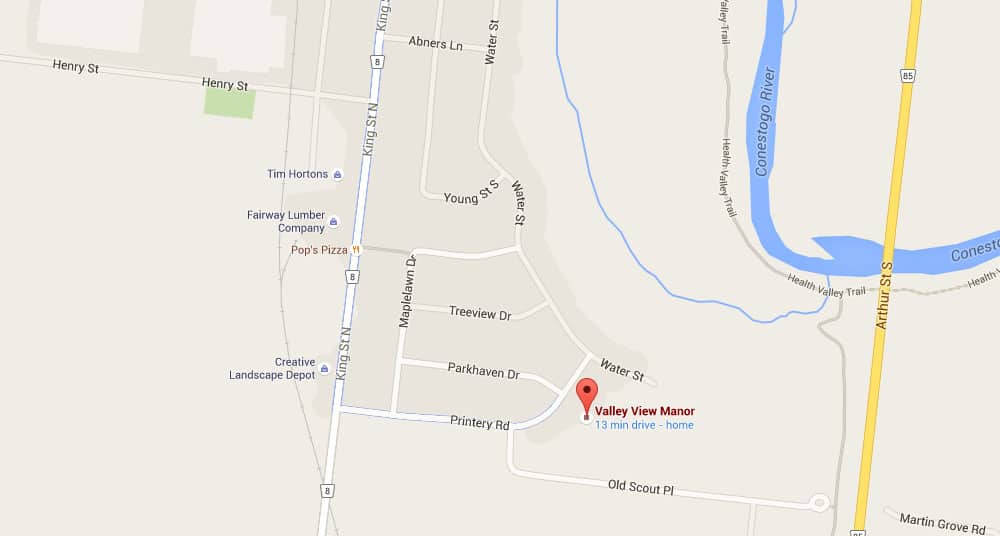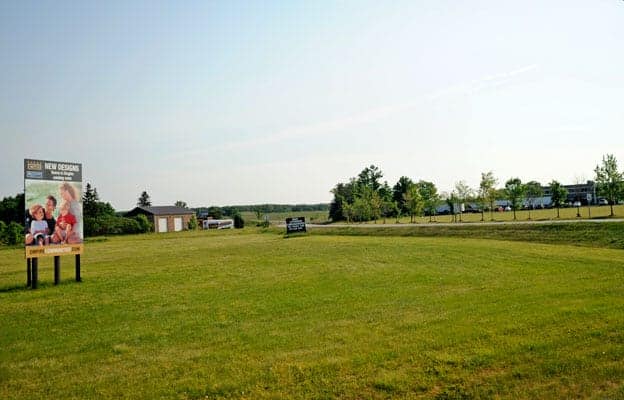As the local 4-H Club celebrates a century of existence, so too does another Waterloo agricultural staple, the Waterloo Holstein Breeders.
![Phil, Ralph and Ryan Martin are all part of the Waterloo Holstein Breeders, who will be celebrating the club’s 100 year anniversary on July 4 at an Elmira farm, with historical displays, food, and children’s entertainment.[Whitney Neilson / The Observer]](https://www.observerxtra.com/content/images/wp-content/uploads/2015/07/post_farm.jpg)
Ralph Martin, a third generation Holstein cattle breeder, says it’s important to recognize the club’s history and progress.
“We’ve been active all those years and it’s a different group of people, no doubt, than what started it,” Martin said. “And some of the functions maybe have changed a little bit, but it’s an organization that provides education, provides social activities, and is a grassroots organization that feeds back and forth to the national organization.”
In celebration of the anniversary, past and present breeders will gather at Bruview Holsteins in Elmira on July 4. Martin is a past-president and director of the club, along with his son Ryan. His son Phil serves as a director of the club now. Martin’s grandfather started breeding Holsteins some 91 years ago.
And as can be expected, there have been plenty of changes in the industry since then.
“Certainly what’s important to the breed, to the Holstein cow has changed along the way,” Martin said. “We’ve certainly progressed an awful lot. If you see pictures of what cows used to look like when they first arrived here in 1883, that was of course before our club started here, when the first cows arrived to Canada from Holland in 1883 they looked an awful lot different than what they do today.”
He explains the industry has grown in the sense that they produce more than they ever have. But it’s also shrunk, because far fewer people are getting into the cattle business. Even within the time he’s been farming, he says they’re down to close to 10 per cent of the dairy farms provincially. Despite the changes, he says they still serve their purpose: providing volumes of milk to the public.
With his sons working in the industry now as fourth generation Holstein breeders, his hopes for the club are to continue to help meet the demands of the commercial dairy farmer, and to provide high quality milk and animal products to consumers efficiently.
Another difference he’s noticed in his time as a farmer is the move to specialized farms. When the club began 100 years ago most farms would have been mixed farming, with a couple cows, chickens, and pigs. Now farmers tend to focus on one animal, like cattle or sheep.
“Much larger quantities of milk are leaving the farm and also, maybe not so much in Waterloo, but consolidation in the sense of not just one family is receiving income off of one farm,” Martin explained. “Even within our farm here we have three families or three incomes coming out of this farm.”
As to why fewer people are in the Holstein business, he says science and technology are allowing farmers to be more efficient. Also, a lot of people are losing interest, preferring to work in more modern fields.
“The next generation isn’t interested in milking cows, but we still have more than enough people wanting to be in the industry to supply the demands. But it’s a phenomenon that’s right across the world,” Martin said.
For Martin, his highlights of being a Holstein breeder are all about progress. He estimates they’ve doubled their production in the country per cow over the last 60 years. The cows are also doing it easier, he says. If they had a record production cow 60 years ago, you’d be able to tell just by looking at it.
“I remember being a young boy, nine years old, when my father had the highest production herd in the county here of Waterloo,” Martin recalls. “Within that herd we had one cow that was in the top 10 in Canada. Today if we had a herd with that production level and a cow that caliber we would get rid of her because we’ve progressed so much from that time.”
Something he’s proud of the industry for, which will be part of the anniversary event, is how they network. He says in a lot of industries you don’t share your secrets with others because you just want to get ahead.
“As my own sons say, this industry, the farming industry, there’s a lot of communication between producers, between stakeholders, to share our secret, sort of thing,” Martin said. “We do share each others’ accomplishments, our failures. We all learn from each other and that is something we enjoy doing.”
The celebration starts at 11 a.m. at Bruview Holsteins, 1379 Tilman Rd. in Elmira on July 4. A meal of beef on a bun, salads and cake will be served at noon. The official program starts at 1 p.m. and you’re asked to bring your own lawn chairs. Children’s entertainment will be provided as well as historical displays for the older folks. It cost $15 for adults, $5 for children (6-12), and free for children five and under.









